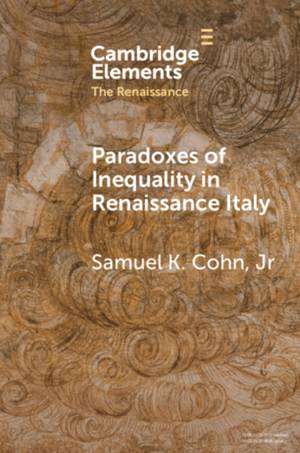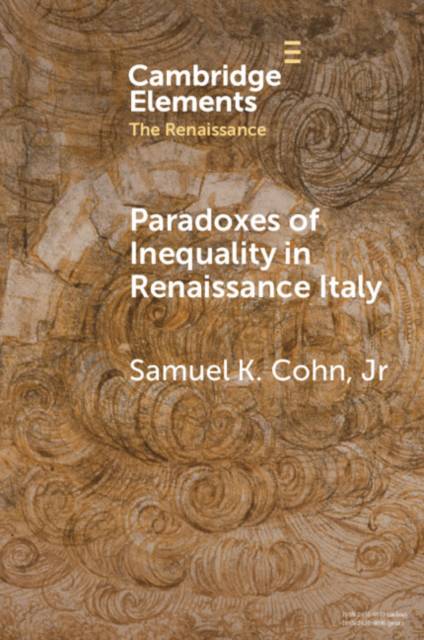
- Afhalen na 1 uur in een winkel met voorraad
- Gratis thuislevering in België vanaf € 30
- Ruim aanbod met 7 miljoen producten
- Afhalen na 1 uur in een winkel met voorraad
- Gratis thuislevering in België vanaf € 30
- Ruim aanbod met 7 miljoen producten
Zoeken
Omschrijving
This Element explores the longest spell that can be computed from quantifiable fiscal records when the gap between rich and poor narrowed. It was the post-Black-Death century, c. 1375 to c. 1475. Paradoxically, with economic equality and prosperity on the rise, peasants, artisans and shopkeepers suffered losses in political representation and status within cultural spheres. Threatened by growing economic equality after the Black Death, elites preserved and then enhanced their political, social, and cultural distinction predominantly through noneconomic means and within political and cultural spheres. By investigating the interactions between three 'elements'-economics, politics, and culture-this Element presents new facets in the emergence of early Renaissance society in Italy.
Specificaties
Betrokkenen
- Auteur(s):
- Uitgeverij:
Inhoud
- Aantal bladzijden:
- 75
- Taal:
- Engels
- Reeks:
Eigenschappen
- Productcode (EAN):
- 9781108970389
- Verschijningsdatum:
- 5/08/2021
- Uitvoering:
- Paperback
- Formaat:
- Trade paperback (VS)
- Afmetingen:
- 152 mm x 229 mm
- Gewicht:
- 131 g

Alleen bij Standaard Boekhandel
+ 63 punten op je klantenkaart van Standaard Boekhandel
Beoordelingen
We publiceren alleen reviews die voldoen aan de voorwaarden voor reviews. Bekijk onze voorwaarden voor reviews.











